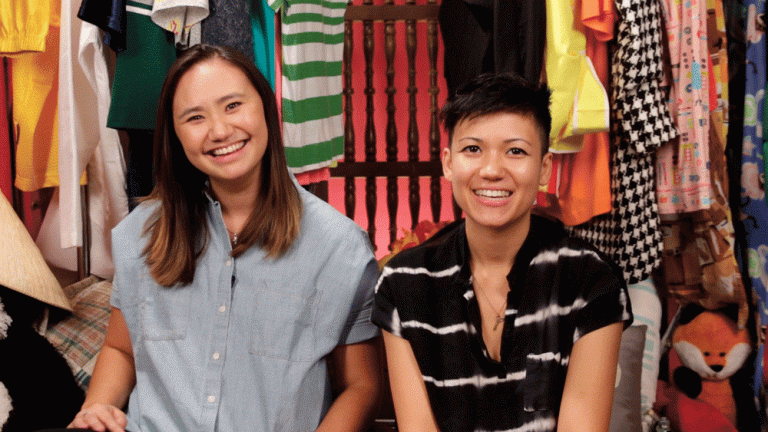
Gwendolyn Wu
Executive Content Editor
Students looking for a mix of millennial media and diversity might find solace in going to “Two Gaysians with Big Dreams and Confused Dads” on Wednesday night.
The event features Niki Ang and Jen Ruggirello, two video producers at BuzzFeed known for their popular LGBTQ YouTube series, “In the Closet.” Queer Asian Pacific Islanders and UCSB Pride are hosting the talk and Q&A in the MultiCultural Center Lounge from 8:30 to 9:30 p.m. as part of Pride Week, an annual celebration of LGBTQ identity that aims to educate and include diverse populations on campus.
Ali Chen, the fourth year economics and accounting major organizing the event, began planning a film screening and Q&A for Pride Week earlier this year. However, she said she was drawn to feature “In the Closet,” an “authentic” show on YouTube that millennials could relate to. The representation of diverse voices is a prominent feature of the show.
“I feel like visibility is so important,” Chen told The Bottom Line. “If I had known about being API and queer earlier on, it would have helped me out a lot more. I feel like seeing [Ang and Ruggirello] so successful will maybe inspire other people to keep going.”
For Chen, seeing people like Ruggirello and Ang on screen showed her that there were Asians who unapologetically identified as queer. Media typically features white, gay men for representations of LGBTQ experiences, and having a series like “In the Closet” explore the effects of race on gender and sexuality helped her learn more about her identity.
In recent years, media consumers have criticized Hollywood for the lack of diversity in both their products and their production. A 2016 study from the University of Southern California found that only seven percent of films accurately reflected the country’s racial diversity. At least half or more of film and TV shows failed to cast an Asian character in a speaking role. Roughly two percent of over 11,000 speaking characters analyzed were LGBTQ.
LGBTQ API are a minority within a minority. The 2010 U.S. Census data shows that approximately 2.8% of the API population identify as LGBTQ.
“When they don’t see themselves being represented it makes them feel invisible, further silenced, and erased,” Chen said.
In an email to The Bottom Line, Ang and Ruggirello expressed their views on the importance of representation and how it permeates each aspect of the media industry.
“Accurate representation starts from every level of production,” Ruggirello wrote. “You can’t put people of color on the screen and stick ‘em with white folks at every other post. Directors, writers, editors, cinematographers are often overwhelmingly white and cis. The people making stuff should reflect the stories they’re telling.”
Ang noted that sharing her own experiences through BuzzFeed changed how she viewed herself. For her, what ultimately is the most rewarding part of her work is connecting with people who relate to what she shares on screen, and seeing how their stories are similar to hers.
“Finding these shared experiences and commonalities can bring together whole communities,” Ang wrote. “Our stories are worth telling and they are powerful, no matter the size of your platform.”
With over 100 people, including alumni, expressing interest in attending the event on Facebook, it’s apparent that the platform Ang and Ruggirello are using to share their experiences has reached a large and eager audience.
Chen is aware that the names may draw the attention of people who simply want to meet Ang and Ruggirello, but believes that the discussion will be beneficial to both LGBTQ Asian Pacific Islanders and their allies.
While the event is just one portion of the larger UCSB Pride Week, all three say that it presents an opportunity to reach out to a big community.
“I think it starts in recognizing that broadening representation and being actively inclusive will only benefit the industry as a whole,” Ang wrote. “It is proven that the LGBTQ+ and API communities consume copious amounts of media and we are quick to celebrate inclusion and recognize inauthenticity. Queer and API people exist in the world, so why shouldn’t our experiences be reflected in the media we consume?”










